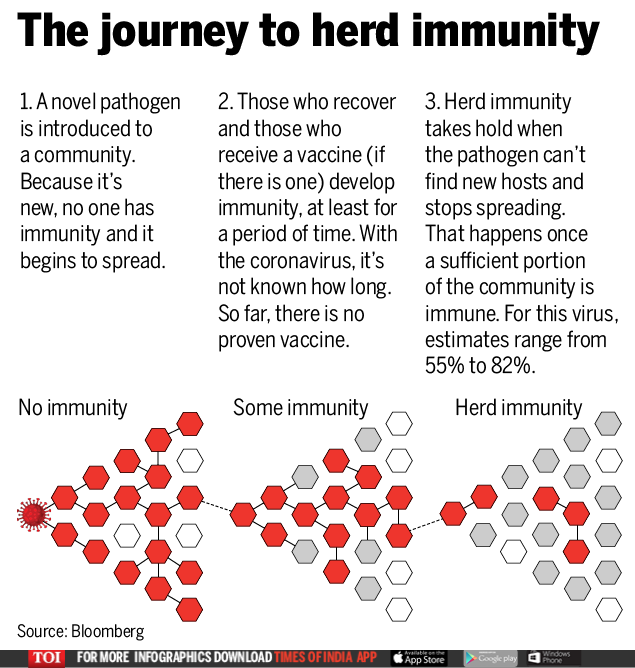NEW DELHI: Controversial given the high risk of deaths, a coronavirus strategy discarded by the UK is being touted as the solution for young countries like India.
The herd immunity strategy, which would allow a majority of the population to gain resistance to the virus by becoming infected and then recovering, could result in less economic devastation and human suffering than restrictive lockdowns designed to stop the virus’s spread, a number of experts have begun to argue in the nation of 1.3 billion people.
Blog: Level the field – News producers can’t keep incurring the costs while digital platforms drain away profits

“No country can afford a prolonged period of lockdowns, and least of all a country like India,” said Jayaprakash Muliyil, a prominent Indian epidemiologist. “You may be able to reach a point of herd immunity without infection really catching up with the elderly. And when the herd immunity reaches a sufficient number the outbreak will stop, and the elderly are also safe.”
A team of researchers at Princeton University and the Center for Disease Dynamics, Economics and Policy, a public health advocacy group based in New Delhi and Washington, has identified India as a place where this strategy could be successful because its disproportionately young population would face less risk of hospitalization and death.
They said allowing the virus to be unleashed in a controlled way for the next seven months would give 60% of the country’s people immunity by November, and thus halt the disease.
Read our coronavirus live blog for all the latest news and updates
Mortality could be limited as the virus spreads compared to European nations like Italy given that 93.5% of the Indian population is younger than 65, they said, though no death toll projections were released.
The radical prop

